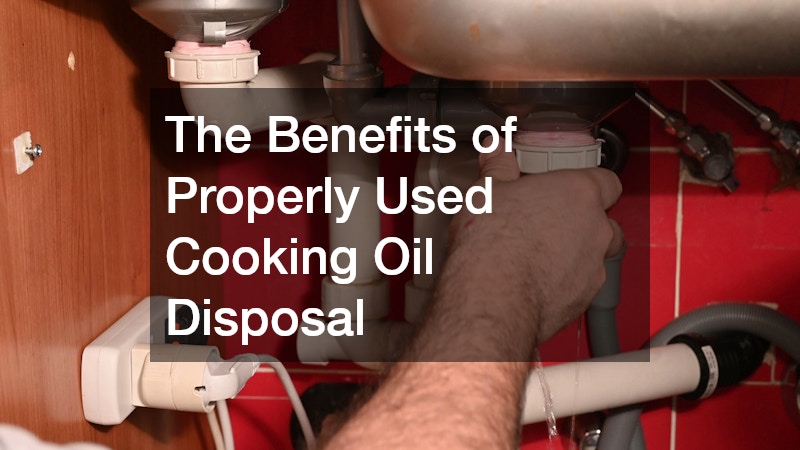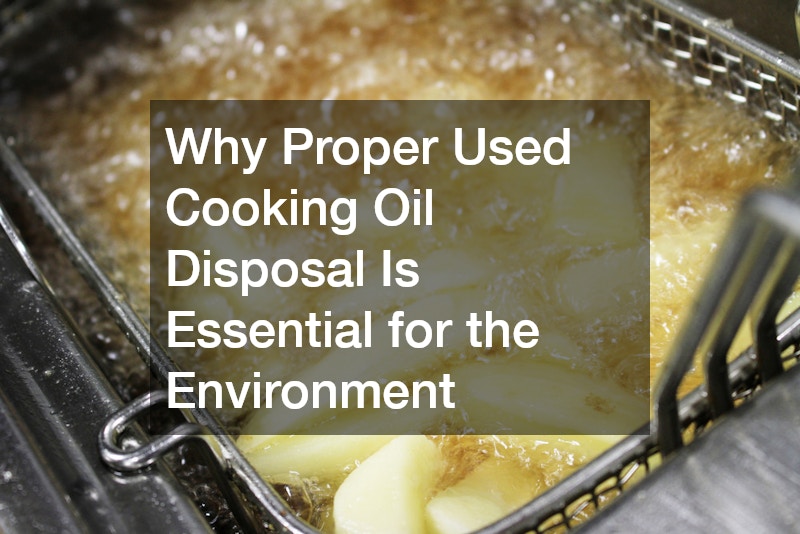Used cooking oil, often considered a waste product, poses significant challenges when it comes to disposal. Improper disposal not only clogs plumbing systems but also has a detrimental impact on the environment. Understanding the importance of proper used cooking oil disposal can help mitigate environmental damage and promote sustainability. This article explores the critical reasons why it is essential to dispose of used cooking oil responsibly, highlighting the considerable benefits for ecosystems and communities alike.
The Environmental Impact of Improperly Used Cooking Oil Disposal
Improper disposal of used cooking oil can lead to significant environmental damage. When cooking oil is poured down the drain, it contributes to the formation of fatbergs, which are large masses of congealed fats, oils, and other waste. These fatbergs can cause blockages in sewage systems, leading to overflows that contaminate natural waterways. The contamination of rivers and oceans can severely affect aquatic life, as oil forms a thick layer on the water’s surface, blocking sunlight and reducing oxygen levels. Additionally, the oil released into the environment can harm plants and soil health, disrupting entire ecosystems.
Oil spills caused by improper disposal create an imbalance in delicate ecosystems. The thick layer of oil prevents sunlight essential for photosynthesis from penetrating the water, affecting aquatic plants’ growth. Reduced plant growth decreases the oxygen level, which impacts fish and other marine life that rely on both plants and oxygen to thrive. The oily layer also hampers the ability of birds to regulate their body temperature and stay buoyant, often leading to increased mortality rates. These environmental changes can have a cascading effect, leading to loss of biodiversity and threatening endangered species.
Wastewater treatment facilities face increased operational challenges due to improper oil disposal. Cooking oil disposed of in drains requires additional processing and treatment, increasing energy consumption and operational costs. This additional strain can result in higher utility costs for consumers and potentially lead to untreated waste being discharged into the environment. Moreover, the energy-intensive processes contribute to a larger carbon footprint. By promoting proper used cooking oil disposal, we can protect our water systems and reduce the energy demand on treatment facilities, ultimately supporting environmental sustainability.
The Benefits of Properly Used Cooking Oil Disposal
Properly used cooking oil disposal offers numerous environmental and economic benefits. One of the primary advantages is the prevention of plumbing blockages and maintenance costs, saving municipalities and homeowners significant expenses. Recycling programs can convert used cooking oil into biodiesel, a sustainable and renewable energy source. Biodiesel is biodegradable and emits fewer pollutants than traditional fossil fuels, making it an eco-friendly alternative. By supporting recycling efforts, communities can reduce greenhouse gas emissions and contribute to a cleaner and greener environment.
Through proper disposal and recycling, used cooking oil can become a valuable resource for the energy industry. The collected oil provides feedstock for biodiesel production, reducing dependency on fossil fuels and promoting energy independence. Furthermore, the conversion process generates economic opportunities, creating jobs in the areas of collection, processing, and distribution. Communities that implement successful disposal and recycling programs can foster economic growth while advancing environmental protection. Harnessing the potential of used cooking oil as a resource demonstrates a commitment to a circular economy and sustainable practices.
Public awareness and education are crucial for effective used cooking oil disposal programs. By enhancing residents’ understanding of the negative impacts of improper disposal, communities can encourage responsible behavior. Educational campaigns can highlight the steps for proper disposal, such as cooling the oil, storing it in sealed containers, and delivering it to designated recycling centers. These initiatives empower individuals to make informed decisions that protect both the infrastructure and the environment. As more people participate in proper disposal practices, the collective effort can lead to significant environmental benefits and long-term sustainability.





